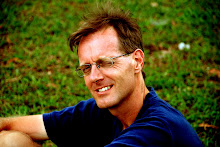Desertification Is the End of Being
OVERVIEW & COMMENTARY by Dr. Glen Barry, Ecological Internet
A new study by United Nations University suggests climate change is making desertification [more] "the greatest environmental challenge of our times". They report that some 50 million people may be displaced within the next 10 years as a result of desertification [search], and that ultimately some one-third of
the Planet's population is threatened by expanding deserts.
The process of desertification is the ultimate end result of all poor environmental stewardship, a synthesis of climate change and land clearing, that quite literally makes the Earth a burning hell. They are not making much new land, so just exactly where will the natural resources, food and water come from to care for an increasingly urban world. Hello?! Is anyone home? Is there anybody in there? How many more reports on looming environmental catastrophe can be ignored without major loss of life and a severe decline in the complexity and habitability of the Earth? Are we so into our ipods and Paris Hilton that we can not see the Earth is dying? Climate change, water scarcity, over-fished oceans and desertification; to say nothing of AIDs, terrorism, militarism and poverty; threaten our very being. Yours. Your childrens. It is essential that policy and strategy to fight global threats are integrative, and willing to propose and implement actions that are up to the task of reversing monumental adverse trends. Fifty million people, driven from their land, because we refuse to stop wantonly procreating and consuming. I am stunned, shocked, dismayed (and yes deeply hurt) to read dispassionate accounts of the ecological foundation of being dismantled tree by tree, SUV by SUV. We shall learn to live differently with the Earth or we shall not live at all.
Please forgive the emotions as I mourn the looming end of being, Eden turned to dust, by ignorance and vanity.
To comment:
http://www.climateark.org/blog






